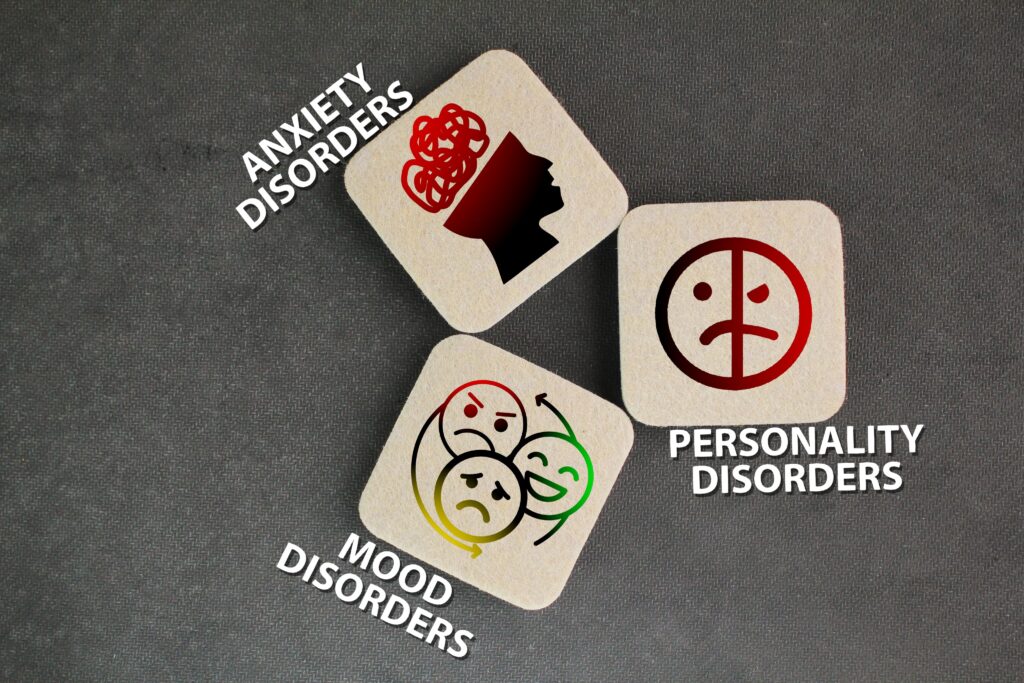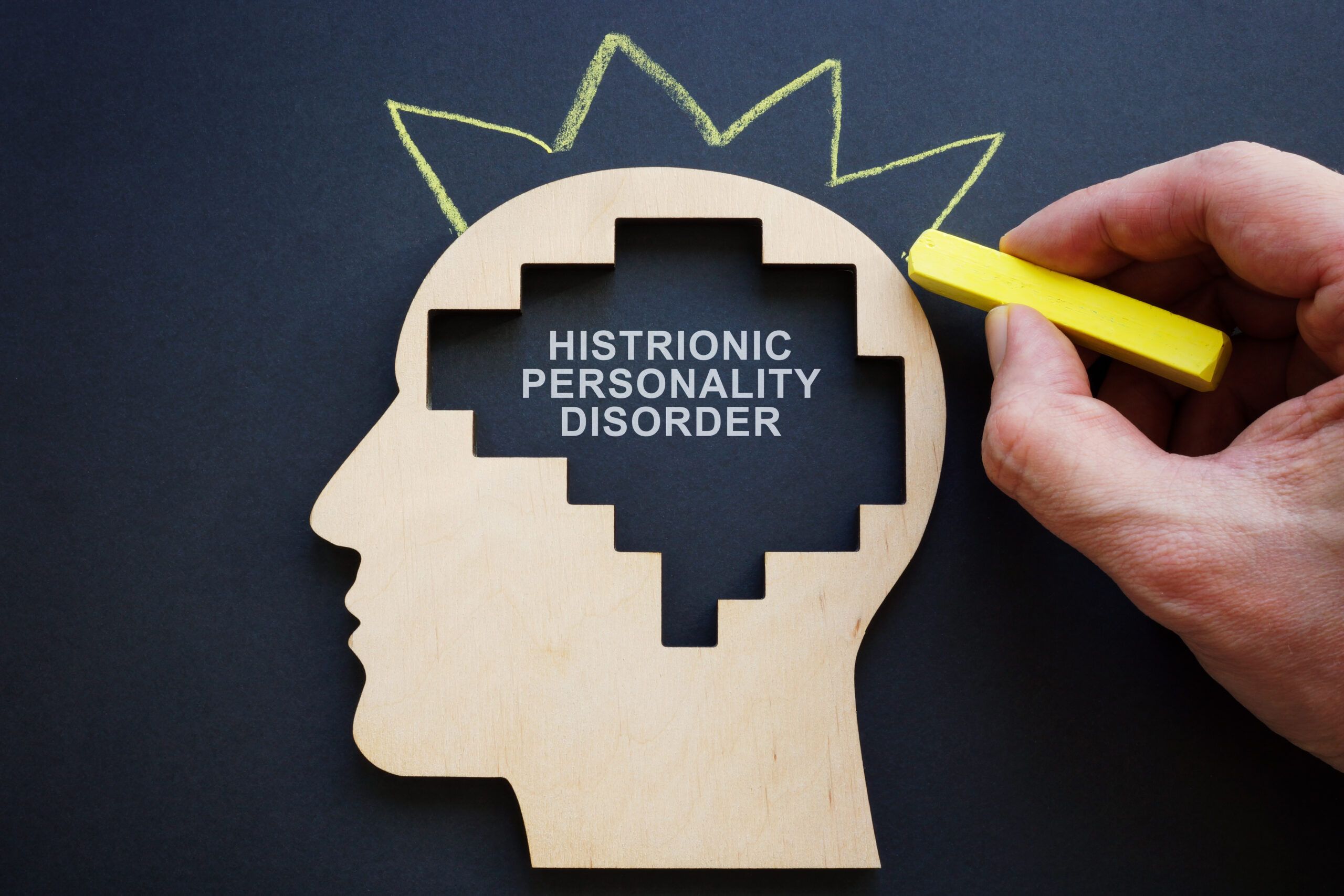An Overview of Histrionic Personality Disorder
Histrionic personality disorder (HPD) is a mental health condition marked by pervasive attention-seeking, emotional overreaction, and a distorted sense of self-image. People with HPD often feel uncomfortable unless they are the center of attention, may display rapidly shifting emotions, and can be highly influenced by others.
While everyone craves validation at times, HPD takes this need to an extreme, often disrupting daily life, relationships, and self-esteem.
Symptoms and Signs of the Disorder
HPD is classified as a Cluster B personality disorder, sharing this group with borderline, narcissistic, and antisocial personality disorders.
- Discomfort when not the center of attention
- Dramatic, theatrical, or provocative behavior
- Rapidly changing and shallow emotions
- Easily influenced by others or circumstances
- Overemphasis on physical appearance to draw attention
- Misinterpreting relationships as more intimate than they are
- Impulsivity and excitability
These patterns often emerge in adolescence or early adulthood and may overlap with other mental health conditions, including borderline personality disorder (BPD), narcissistic personality disorder, and substance use disorders.
How HPD Develops
The roots of histrionic personality disorder are complex. Genetics, environmental influences, and early childhood experiences all play a role.
- Genetic predisposition: Family history of personality disorders can increase risk.
- Environmental factors: Childhood trauma, neglect, or inconsistent parental attention may contribute.
- Parenting styles: Permissive or inconsistent parenting can foster attention-seeking behaviors as coping strategies.
Regardless of the cause, HPD can deeply affect one’s quality of life, relationships, and sense of self. Many individuals with HPD also struggle with emotional regulation, mood swings, and a persistent fear of abandonment, symptoms commonly seen in other cluster B disorders like BPD.

HPD and Other Personality Disorders
Histrionic Personality Disorder (HPD) is part of the cluster B group of personality disorders, which also includes Borderline, Narcissistic, and Antisocial Personality Disorders.
Because these conditions can share some overlapping features—such as intense emotions or impulsive behaviors—they are easily mistaken for one another.
However, each disorder has distinct characteristics that set it apart.
- Histrionic Personality Disorder (HPD): A pervasive pattern of attention-seeking behavior marks individuals with HPD. They tend to be highly emotional, often overreacting to situations, and feel uncomfortable when they are not the center of attention. Dramatic gestures, rapidly shifting emotions, and a desire for approval or reassurance are common.
- Borderline Personality Disorder (BPD): People with BPD experience significant instability in their moods, self-image, and personal relationships. They frequently struggle with an intense fear of abandonment, may engage in self-harming behaviors, and often act impulsively. Their relationships are usually intense and chaotic.
- Narcissistic Personality Disorder (NPD): NPD is characterized by an inflated sense of self-importance and a strong need for admiration. Those with NPD may act superior to others and often lack genuine empathy. They crave attention primarily to reinforce their perceived superiority rather than gain approval or emotional support.
- Antisocial Personality Disorder (ASPD): People with ASPD display a blatant disregard for the rights and feelings of others. They may be manipulative or deceitful and engage in behaviors that violate social norms or the law. Lack of remorse or guilt is a hallmark trait.
While all four cluster B personality disorders may involve emotional intensity or interpersonal difficulties, HPD stands out for its theatricality and urgent desire to be noticed and validated.
In contrast, BPD is dominated by fears of abandonment and rapidly changing moods, NPD by grandiosity and lack of empathy, and ASPD by manipulative behaviors and disregard for others.
Understanding these distinctions is crucial for accurate diagnosis and effective treatment.
The Impact on Daily Life and Relationships
Living with HPD can be challenging. The constant quest for approval and difficulty forming authentic connections can lead to:
- Strained relationships with family members and loved ones
- Trouble maintaining employment or academic success
- Co-occurring mental health conditions, such as depression, anxiety, or substance abuse
- Risk of self-harm or suicidal threats, especially when attention needs are unmet
If you or a loved one recognizes these patterns, seeking professional support is vital to healing.
Why Seek Treatment for HPD?
Without intervention, HPD can lead to ongoing distress, impaired functioning, and worsening mental health. Professional treatment helps individuals:
- Develop healthier coping strategies
- Improve emotional regulation and distress tolerance
- Build a stronger, more stable sense of self
- Enhance quality of life and well-being
Thoroughbred Wellness and Recovery specializes in evidence-based, individualized personality disorder treatment for HPD and co-occurring conditions in Atlanta and throughout Georgia.
Thoroughbred Wellness and Recovery: A Supportive Environment for Healing
Thoroughbred Wellness and Recovery is more than just a treatment center- it’s a place where hope and healing run free. Our approach is rooted in compassion, expertise, and a deep commitment to helping guests reclaim their lives.
Who We Serve
Thoroughbred Wellness and Recovery welcomes a diverse guestele, including:
- Adults transitioning from inpatient or residential care
- Busy professionals, parents, college students, military, and first responders
- Individuals seeking a supportive environment for mental health and substance abuse recovery
- Those with dual diagnosis or co-occurring disorders
- People who do not require detoxification but need structured support
Levels of Care and Treatment Programs
The center offers a full continuum of care, ensuring each guest receives the right level of support for their specific needs:
- Partial Hospitalization Program (PHP): Intensive, structured day treatment that provides comprehensive therapy while allowing guests to remain in their community.
- Intensive Outpatient Program (IOP): Flexible, evidence-based therapy sessions designed for those who need more support than traditional outpatient care but less than inpatient treatment.
- Outpatient Treatment: Ongoing support and therapy for continued growth and relapse prevention.
- Dual Diagnosis Treatment: Integrated care for individuals with both substance use disorder and mental health conditions, including HPD, BPD, and mood disorders.
A Holistic, Evidence-Based Approach
Thoroughbred Wellness and Recovery’s treatment plans are tailored to each individual. Their multidisciplinary team uses a blend of evidence-based modalities and holistic therapies to address the mind, body, and spirit:
- Cognitive Behavioral Therapy (CBT): Helps guests identify and change distorted thought patterns and develop healthier coping skills.
- Dialectical Behavior Therapy (DBT): Especially effective for emotional regulation, distress tolerance, and interpersonal effectiveness, crucial for HPD and borderline personality disorder.
- Group Therapy: Provides peer support, skill-building, and a sense of community, helping guests practice healthier relationship patterns in a safe environment.
- Individual Therapy: One-on-one sessions to explore core issues, build self-image, and set personal goals.
- Family Therapy: Engages family members in the healing process, improving communication, boundaries, and support for lasting recovery.
- Medication Management: Psychiatric evaluation and medication support for co-occurring mental health conditions like depression, anxiety, or mood swings.
- Holistic Modalities: Yoga, meditation, breathwork, fitness, and art therapy to promote overall wellness and resilience.
Specialized Modalities and Unique Therapies
What sets Thoroughbred Wellness and Recovery apart is our commitment to innovative, integrative care:
- Equine-Assisted Therapy: Optional sessions with horses to foster trust, confidence, and self-awareness, especially helpful for those struggling with boundaries and self-image.
- Experiential and Psychodrama Therapy: Creative approaches that help guests process emotions and experiences in new ways.
- Accelerated Resolution Therapy (ART), Eye Movement Desensitization and Reprocessing (EMDR), and Rapid Resolution Therapy (RRT): Trauma therapies to address underlying wounds that may contribute to personality disorder symptoms.

The Treatment Journey
Every Thoroughbred Wellness and Recovery guest receives a personalized treatment plan developed with a dedicated treatment team. Here’s what the journey typically looks like:
- Comprehensive Assessment: The process begins with a thorough evaluation of mental health conditions, substance use, medical history, and personal goals.
- Individualized Treatment Plan: The team crafts a plan that addresses specific needs, preferences, and strengths, adjusting the level of care as needed.
- Therapy Sessions: Clients participate in a blend of individual, group, and family therapy, building coping skills and emotional regulation strategies.
- Skill-Building and Wellness Activities: Clients engage in holistic practices, creative therapies, and experiential learning to enhance resilience and self-care.
- Ongoing Support: As guests progress, the treatment plan evolves to support continued growth, relapse prevention, and reintegration into daily life.
Addressing Co-Occurring Disorders and Dual Diagnosis
Many individuals with HPD also experience other mental health disorders, such as:
- Borderline personality disorder (BPD)
- Narcissistic personality disorder
- Antisocial personality disorder
- Avoidant, schizoid, schizotypal, paranoid, dependent, and obsessive-compulsive personality disorders
- Substance use disorder and addiction
- Mood and anxiety disorders
Thoroughbred Wellness and Recovery’s dual diagnosis program is designed to address these overlapping challenges, ensuring comprehensive, integrated care for lasting recovery.
Building Coping Skills and Emotional Regulation
A core focus of HPD treatment is helping guests develop healthier coping strategies for managing intense emotions, impulsivity, and distress tolerance. Skills taught include:
- Mindfulness and present-moment awareness
- Emotional regulation techniques
- Communication and interpersonal effectiveness
- Boundary-setting and assertiveness
- Stress management and relaxation practices
These skills empower guests to navigate daily life with greater confidence, stability, and self-acceptance.
Take The Important First Step
If you or a loved one are struggling with histrionic personality disorder, borderline personality disorder, or any other mental health condition, know that you are not alone. The path to healing may feel daunting, but with the right support, recovery is possible.
Reach out to Thoroughbred Wellness and Recovery in Atlanta, GA, at 770-564-4856 and take the first step toward a brighter, more authentic future. Our dedicated team is here to help you rediscover your sense of self, build lasting coping skills, and live a life of bold, brave, and authentic freedom.










